Home » Turning Stigma into Strength: Indonesia’s Innovative Support Movement for Ostomates
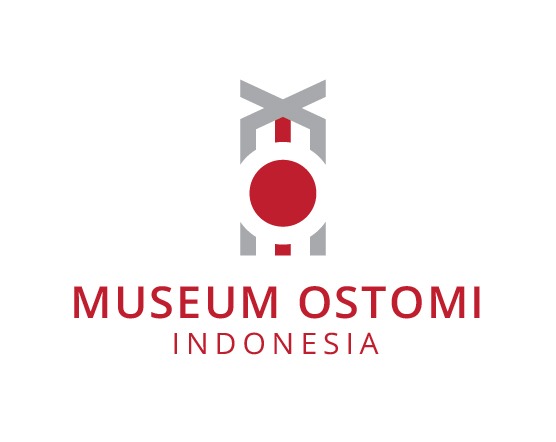
Author: Widasari Sri Gitarja 1 ; Tommy Abbas 2 ; Rifa Qidya Ardi 3
123 WOCARE Indonesia; 2 MUSEUM Stoma; 3 WOCARE Centre
In Indonesia, the journey towards acceptance and empowerment for ostomates living with a stoma has experienced a significant shift in recent years. While in the past their presence was often hidden behind walls of stigma and shame, a wave of hope now brightens their lives, driven by the innovative movement led by WOCARE Indonesia. What started as a simple celebration of World Ostomy Day has grown into a catalyst for change through the creation of the country’s first Stoma Museum.
Within a society where a stoma is still too often linked to weakness or loss, the Stoma Museum sheds new light on public perception. This is no ordinary museum; it is a true sanctuary that combines education, psychosocial support, and economic empowerment within an integrated system. It’s a second home, a safe space to share, learn, create, and support each other.
The Stoma Museum: A Window into Understanding and Acceptance
The establishment of Indonesia’s Stoma Museum marks a significant milestone, not only as a form of education but also as a challenge to the social stigma surrounding stoma. Inside, visitors, ostomates, families, healthcare workers, and the general public can learn about different types of stoma, medical appliances, and, perhaps most importantly, the daily struggles faced by ostomates.
More than facts and figures, it’s the real-life stories of resilience that leave a lasting impression. Photographs, testimonials, and works of art created by ostomates line the walls, serving as living evidence that they are not simply survivors of illness or trauma, but sources of inspiration for individuals who turn adversity into strength.
As one visitor, Mrs Suryati (56), shares:
“I used to feel deep shame. People thought I was powerless after my operation. But here, I am grateful to meet friends who truly understand. I learned how to make eco-enzymes. Now, my house is always clean and I can share my knowledge with neighbours.”
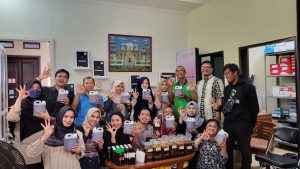
Education on How to Makle Echoenzyme
A Holistic Ecosystem: From Stomapreneur to Psychosocial Support
What makes the Stoma Museum truly unique is its Stomapreneur economic empowerment programme. Instead of simply offering material assistance or therapy, WOCARE Indonesia fosters an entrepreneurial spirit among ostomates through training sessions on hydroponic gardening, baking, handicrafts, eco-enzyme production, and financial literacy. This not only boosts confidence but also opens the door for ostomates to achieve economic independence.
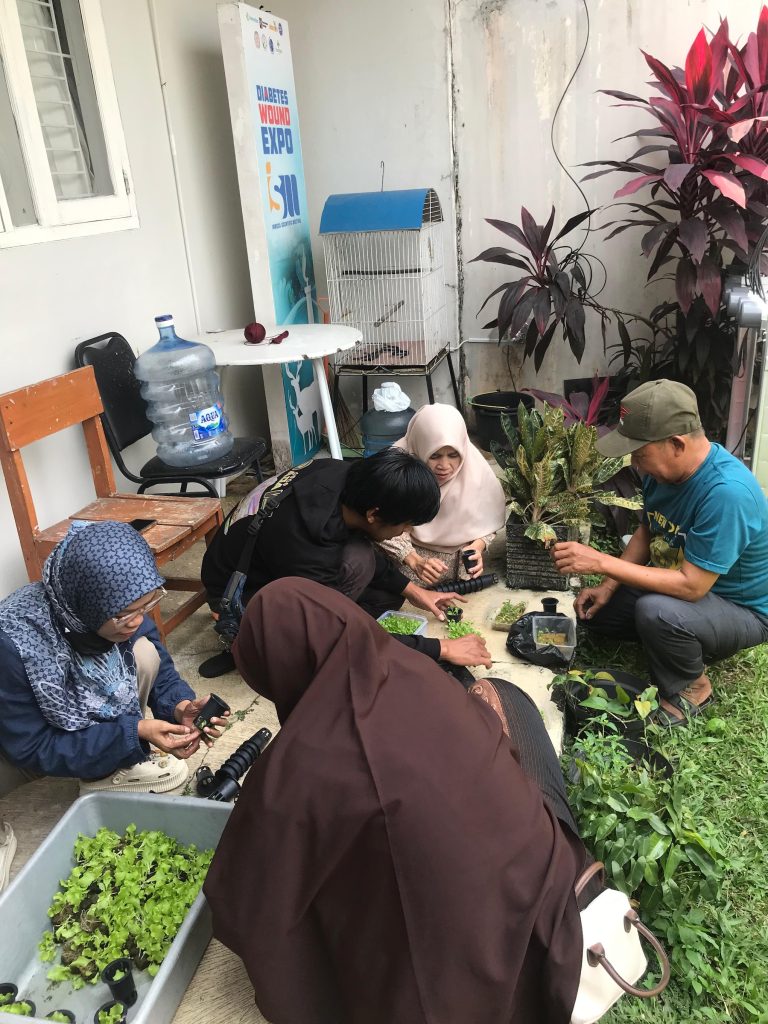
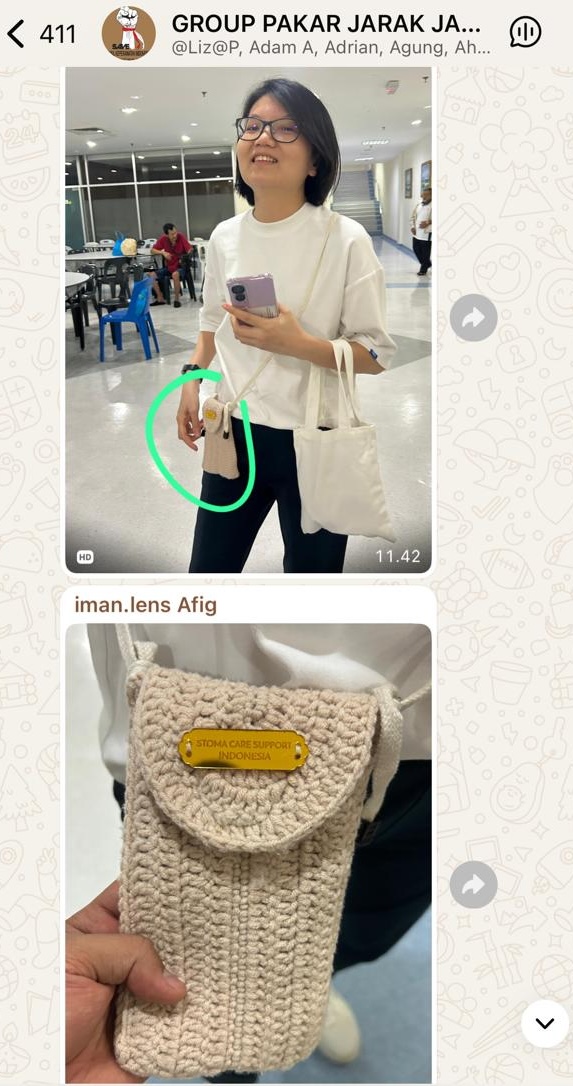
Hydrophonic Educations
A female friend from Malaysia used the handicraft from Stoma Museum
By 2025, 35% of participants will have acquired income-generating skills, such as selling hydroponic vegetables, cookies, handmade crafts, and more. Many who once depended solely on family now find themselves becoming breadwinners, restoring their sense of dignity and self-worth.
This holistic solution goes beyond economics. The museum also provides arts facilities and physical activities such as art therapy, weekly walking groups, and intergenerational exercises with elderly community members. These activities have been shown to significantly reduce psychological distress and social isolation, with 85% of participants reporting improvements in psychological well-being. Artistic activities such as painting, knitting, or simple conversations during group walks offer healthy outlets for expression and foster solidarity among ostomates.
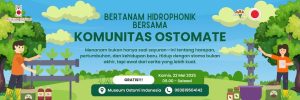
Yuliana School: Training Stoma Doulas, Companions for the Ostomate Journey
Personalised support plays a pivotal role in this movement. Yuliana School, a specialised training centre for Stoma Doulas, sets a new standard. Unlike general healthcare workers, Stoma Doulas are professional companions and empathetic peers, trained to support the emotional, physical, and social adjustment needed during the transition to life with a stoma. They teach basic stoma care skills, foster new self-confidence, and, perhaps most crucially, listen without judgment.
Eka, a graduate of the first Stoma Doula cohort, shares:
“I know exactly how frightening it is after surgery. I used to feel so alone, but now I help others through their journey. I want every ostomate to know: you are never alone.”
Breaking Barriers: Preparing for Congress and Building Global Capacity
WOCARE Indonesia has achieved a major breakthrough by enabling ostomates to participate internationally through the English-free Ostomates programme. The course enhances English communication, allowing ostomates to share experiences and learn from the global ostomate community at events such as the ASPOA Congress (Asia South Pacific Ostomy Association) and the upcoming gathering in Bogor, 2026.
Active involvement on the international stage emphasises that physical boundaries do not restrict ostomates’ contributions; instead, they include advocacy, education, and the creation of more inclusive communities.
Stoma Care Week: Driving National Awareness
Each year, Stoma Care Week is held as part of a structured effort to raise national awareness of stomas. Seminars, exhibitions, and talk shows involve ostomates, families, healthcare professionals, and the general public in proactive education and discussion. These initiatives challenge the idea that a stoma is an embarrassment or burden; instead, they emphasise that a stoma is a vital medical procedure that deserves recognition and genuine support.
Challenging Stigma, Uniting Hope
All these efforts perfectly align with the global theme of World Ostomy Day: “Invisible Disabilities. Visible Support.” The theme serves as a powerful reminder that the challenges faced by ostomates are not always apparent. Discomfort, shame, depression, and physical limitations are often hidden behind everyday clothing and forced smiles.
However, when society provides visible support, measured, tangible, and consistent help, the journey towards self-acceptance and a meaningful life becomes much easier. From a corner of the Stoma Museum in Jakarta to international stages abroad, ostomates voices now resonate as powerful proof that invisible does not mean powerless.
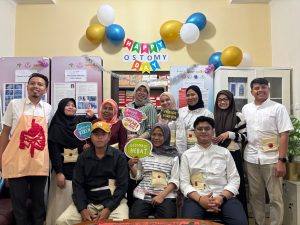
Party WOD at Museum Stoma
Stories of Resilience, Networks of Hope
Beyond statistics and data, it is the web of hope spun by personal stories that shines brightest. Bayu (22), a young ostomate who once ventured outside only at night, now mentors hydroponic gardening and has been invited to university seminars to speak on resilience.
“Shame isn’t a reason to hide away. At the Stoma Museum, I found new brothers and sisters, we encourage one another to keep fighting” he shares.
Siti (47), a mother of two, says she feels more valued since joining handicraft classes.”Every piece I create is a symbol of my own journey. Every time I make a sale, I find the pride I thought I’d lost.”
Cross-Generational and Cross-Professional Collaboration
This ecosystem thrives on cross-collaboration. WOCARE Indonesia has partnered with medical professionals, psychologists, local governments, and volunteers of all ages. Youth volunteers conduct digital marketing workshops for Stomapreneure programmes, assist in promoting ostomate products, and train members in technological literacy..
This community-based movement inspires solidarity across all ages and backgrounds, ensuring ostomates never feel isolated. Volunteers, families, and the wider community become integral to their transformative journey.
Real Impact: The Numbers Speak
The impact of WOCARE Indonesia’s comprehensive support is both emotionally heartfelt and supported by data. Over 127 ostomates participate in weekly activities through online and offline channels, with 75% reporting reduced anxiety and 60% gaining economic benefits. Participants have also become more comfortable sharing their stories, fostering a new culture of openness, empathy, and acceptance.
Building the Future: Setting an Example for the World
Indonesia’s model for a comprehensive support system is attracting international interest. Delegates from neighbouring countries visit the Stoma Museum for study tours. They praise WOCARE for confidently introducing the museum and the training school, initiatives rarely seen elsewhere.
“Indonesia proves that when challenges are faced together, limitations can spark creativity and solidarity,” remarked a delegate at the last ASPOA Congress.
Redefining the Meaning of Disability
What emerges from Indonesia’s ostomate movement is not simply a story of individuals facing illness or injury. It is a collective struggle against stigma, isolation, and socia barriers that so often marginalise people with invisible disabilities. WOCARE Indonesia and the Stoma Museum have become pioneers, redefining disability as a fertile ground for resilience, creativity, and new hope.
As the community’s motto declares:
“In every stoma, there is a story of resilience. In every support, new hope is created. Indonesian Ostomates: Invisible doesn’t mean powerless.”
And further:
“We are the silent generation now finding our voices. Step by step, we prove that real support can tear down the walls of stigma, opening the way to meaningful, independent, and inspiring lives. There is no limit to dreaming. There is no reason to give up, for together, we are strong. Together, we kindle hope for millions of dreams behind every stoma.”
Search for Articles
World Ostomy Day 2025 will be hosted by the OAA Region. Click for more details
More Posts